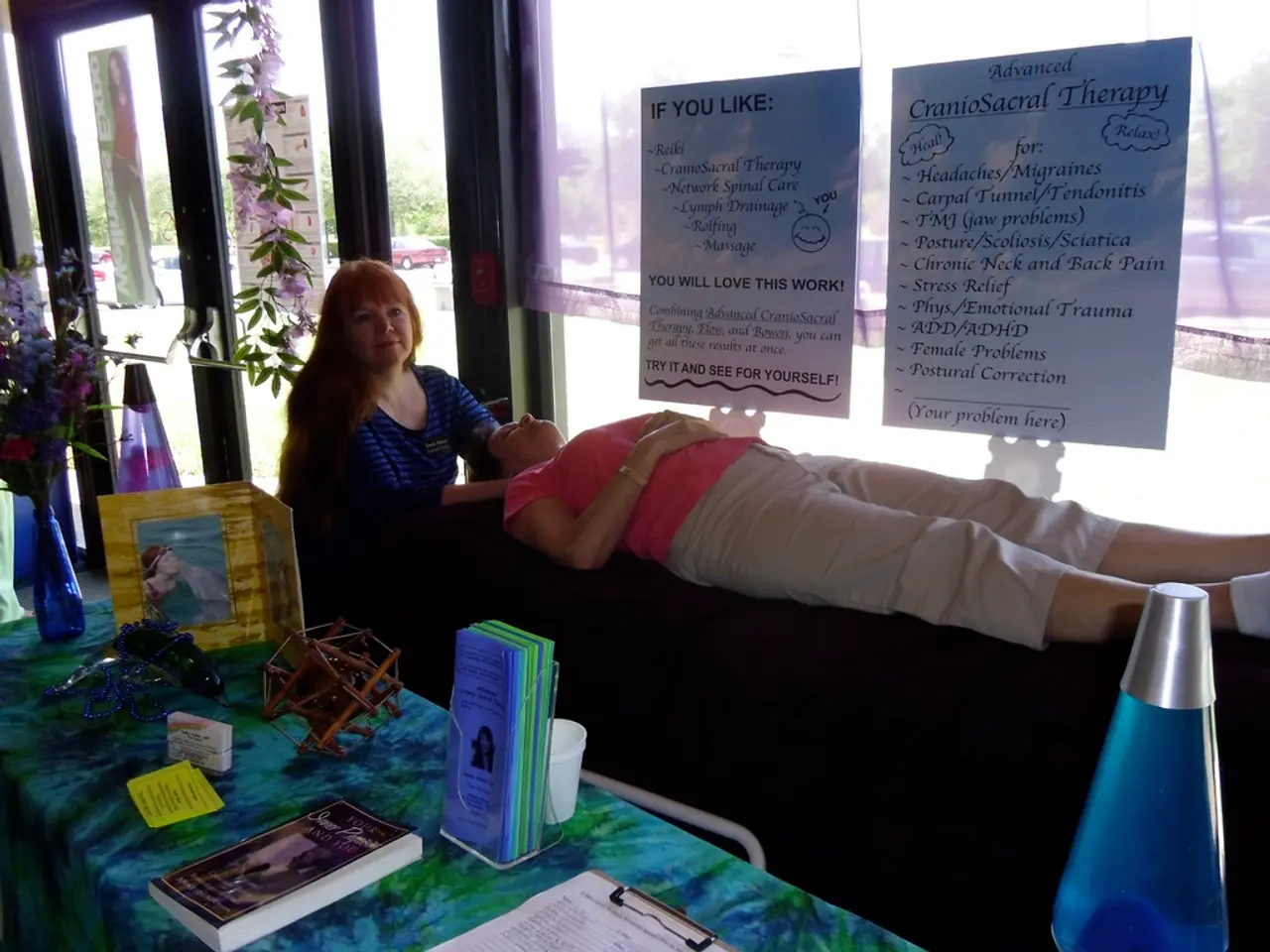Information on Locating Assistance for Depression Struggles
Depression is a common and treatable mental health disorder that affects millions of people in the United States. Fortunately, there are various resources and treatment options available to help individuals manage and overcome depression.
The Substance Abuse and Mental Health Services Administration (SAMHSA) offers an online directory of mental health treatment services in the U.S., and people can also call SAMHSA's national helpline on 800-662-4357 for help finding local treatment facilities, support groups, and community-based organizations. The American Psychiatric Association (APA) also has an online psychologist directory that people can use to find accredited therapists in their area.
Psychotherapy, also known as counseling or talk therapy, is one of the main treatment options for depression. This approach focuses on changing negative thought patterns, improving emotional regulation, addressing interpersonal issues, processing past experiences, accepting emotions, or reprocessing traumatic memories. The main types of psychotherapy used to treat depression include Cognitive Behavioral Therapy (CBT), Dialectical Behavior Therapy (DBT), Interpersonal Therapy (IPT), Psychodynamic Therapy, Acceptance and Commitment Therapy (ACT), and Eye Movement Desensitization and Reprocessing (EMDR) therapy.
Both psychotherapy and antidepressant medications (such as SSRIs and SNRIs) are considered first-line treatments for depression with significant treatment effects on average. CBT is particularly well-studied and effective as a structured, goal-oriented therapy teaching coping skills that have durable benefits beyond treatment ending. DBT, while developed for borderline personality disorder, helps regulate intense emotions and stress and can be effective in complex or treatment-resistant cases. IPT is often short-term and effective in addressing social and relationship factors contributing to depression.
For moderate to severe or treatment-resistant depression, a combination of medication and psychotherapy—or advanced treatments—may be optimal. Electroconvulsive therapy (ECT) can benefit people with depression who do not respond to medication or are experiencing thoughts of suicide or self-harm. Repetitive transcranial magnetic stimulation (rTMS) is another treatment for depression approved by the Food and Drug Administration, which uses electromagnetic energy to stimulate the parts of the brain that control mood.
It is important to note that up to 50% of people with depression use complementary and alternative medicine (CAM) to treat depression, which includes yoga, acupuncture, meditation, massage, art therapy, hypnosis, biofeedback, supplements such as omega-3 fatty acids and folate. While there is less quality evidence for the effectiveness of CAM than there is for first-line treatments such as therapy and medication, it may still provide some relief for individuals struggling with depression.
Anyone experiencing thoughts of suicide or self-harm should contact the suicide and crisis lifeline immediately by calling 988 or chatting by texting 988. The 988 Suicide and Crisis Lifeline is free, confidential, and available 24/7 across the U.S.
In addition to seeking professional help, self-help strategies that may help reduce depression symptoms include getting regular adequate sleep, eating a healthy, balanced diet, avoiding alcohol, exercising regularly, and journaling symptoms.
For individuals with depression and other mental health conditions who are unable to maintain gainful employment, they may claim benefits from the Social Security Administration (SSA) if their condition prevents them from working. The SSA pays benefits through two programs: Social Security Disability Insurance (SSDI) and Supplemental Security Income (SSI), which have strict limitations on income and asset holdings.
The Anxiety and Depression Association of America (ADAA) offers free support groups for individuals with depression, providing a safe and supportive environment for individuals to share their experiences and connect with others who are going through similar struggles.
In summary, depression is a treatable condition with various resources and treatment options available. Psychotherapies like CBT, DBT, and IPT are effective treatments for depression, sometimes comparable to medication, especially for mild to moderate cases. For moderate to severe or treatment-resistant depression, a combination of medication and psychotherapy—or advanced treatments—may be optimal. It is crucial to seek help from a mental health professional and to prioritize self-care and self-help strategies to manage symptoms and improve overall well-being.
- The Substance Abuse and Mental Health Services Administration (SAMHSA) provides an online directory of mental health services and a national helpline, offering help in finding local treatment facilities, support groups, and community-based organizations, including resources for depression therapy.
- Beyond professional help, self-help strategies such as getting regular sleep, adhering to a healthy diet, avoiding alcohol, exercising regularly, and journaling symptoms can help reduce the severity of depression, as part of an overall approach to mental health-and-wellness.




